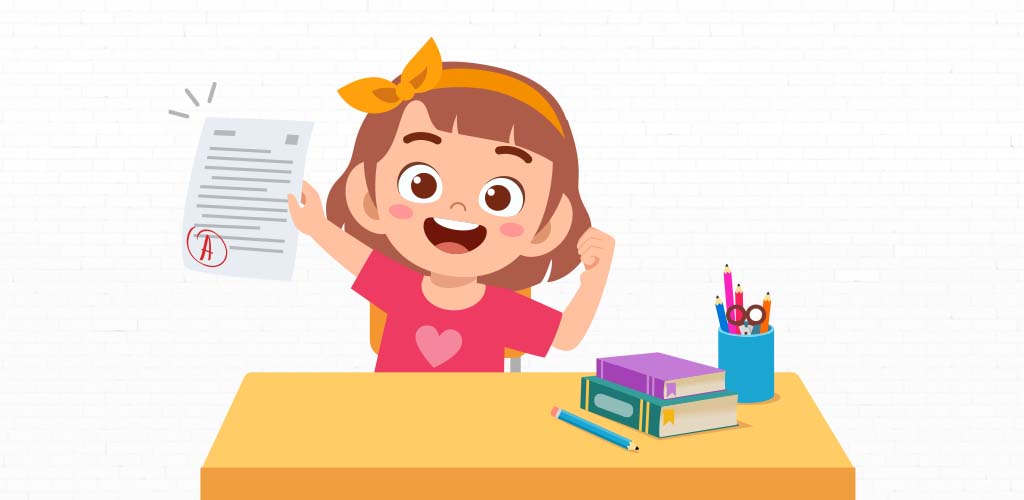Is your child becoming hard to handle, or are you clueless about their sudden mood swings and behavioural changes? Lawrence Kohlberg, a well-recognized American psychologist, constructed a theory about this long ago. Everything that children learn with time impacts their physical and mental development. Adults often think that they are just imitating them. But, there is more to imitate adults’ actions. Kohlberg’s theory of moral development highlights further on this matter. According to the theory, children develop moral reasoning in a series of six stages. The theory suggests that moral logic is primarily focused on seeking and maintaining justice.
Kohlberg's Theory of Moral Development
Learning social science or experimenting in labs are one thing that strengthens with time. Children can learn these things gradually. But what about moral development? This is not something that they learn in their regular curriculum. Also, this development differs from one child to another.
Parents, educators, and leaders from different sections of the society often wondered how children develop morality. Kohlberg delved deeper into the fact and came up with his immortal theory that ruled over centuries.
The educational implications of Kohlberg’s theory of moral development clarified the purpose of the theory more. It unfolded how children develop their moral lessons step by step.
6 Stages of Kohlberg's Theory of Moral Development

Kohlberg has divided moral development into six stages for easy understanding. Though these six stages apply to any child in this world, they are not universal.
Preconventional Morality: Level 1
Stage 1
Do you remember how we used to fear “Mummy ki daant” and “Papa ki pitai” in our childhood? They were our only motivation for not doing any mischief. Before going for any bold activity, we used to imagine our mother’s chappal and back off. Kohlberg identified this as the first stage of our moral development. Until around the age of 9, children’s actions are heavily influenced by punishment. Obedience comes with the fear of punishment. At this age, children see rules as fixed and obeying the rules sharply can help them avoid punishment.
Stage 2
The stage 2 of preconventional morality consists of individualism and exchange. At this stage, children account for individual point of view and judge actions based on how they serve individual needs.
Conventional Morality: Level 2
In the next level, children learn to accept social rules regarding good and moral behavior. During this time, adults and adolescents internalize the moral standards they have learned from society and their role models.
This is the period when children learn to focus on the acceptance of authority and conforming to the norms of the group.
Stage 3
This is the stage when an urge to become a “good boy-good girl” rises among children. They start to live up to the social norms. There is an emphasis on conformity, being “nice”, and consideration of how choices influence relationships.
Stage 4
At this stage, children focus on social order. They start developing moral codes and understand the role of society as a whole while making significant decisions. This is the age when they start to respect society’s moral orders.
Postconventional Morality: Level 3
An abstract principle of morality starts covering children’s layers of thought. Two stages of this level include:
Stage 5
Children learn to speak for their rights. As the next stage is based on confronting people with different values, beliefs, and opinions, this stage prepares them for the fight for their own rights.
Stage 6
Abstract reasoning and ethical principles construct Kohlberg’s final level of moral reasoning. At this stage, people follow these internalized principles of justice, even if they conflict with laws and rules.
Importance of the Theory

The success of this moral development theory lies in the long run. Children learn to differentiate between right and wrong. But interestingly, this judgement changes with time. So, this theory is important to keep a track of the moral development of children.
Application of the Theory
By following Kohlberg’s theory of moral development stages, teachers can understand their students best. As the theory has contributed to every stage of growth of a child, teachers can analyse their students’ behaviour. It will help them change their teaching methodology with the children’s growing age.
Relevance to Education
If one makes notes on Kohlberg’s theory of moral development, they can see how this theory is relevant for children of different ages. Not only teachers, but parents can also follow this theory to understand their kids’ moral development. Most of the issues between parents and children arise due to the lack of understanding. Perceiving the stages of Kohlberg’s moral development theory perfectly helps parents understand their children better.
Limitations of the Theory
The major limitation of the theory includes the children’s reasoning rather than the actual behaviour. Definition of Kohlberg’s theory of moral development highly focuses on the theoretical part and not practical implications. Therefore, following the theory blindly and trying to cope the definition up with any random situation will not do justice.
Final Notes
Kohlberg’s theory of moral development focuses on how morality develops in children and how it impacts their upbringing. Lawrence Kohlberg divided the process into six stages. The first one implies that children follow elder’s thoughts and perceptions about morality. At the second stage, they start developing their own thinking skills, and by the time they reach the third stage, it’s all about being a “good boy-good girl”.
The fourth stage is more about following the conduct of society, while the fifth stage demands them to protect their own right. At the last stage, they prepare themselves to accept others’ idea of morality and guard their own sense of morality at the same time.
Lawrence Kohlberg tried to structure his theory in a way where children’s gradual development is recorded. Before an adult start taking care of a child and nurture their growth in every step of their life, they should be aware of Kohlberg’s theory for more clarity.
Other Related Sections
NCERT Solutions | Sample Papers | CBSE SYLLABUS| Calculators | Converters | Stories For Kids | Poems for kids | Practice Worksheets | Formulas I Parent Resources
Related blogs
Importance of Punctuality in a Student's Life: Explore how punctuality can transform a student’s future
Science Experiment Benefits: Uncover the unexpected advantages of science experiments.
Best Board for UPSC: Discover the best board choice to succeed in UPSC—find out now!



Speak Your Mind
Save my name, email and website in this browser for next time I comment